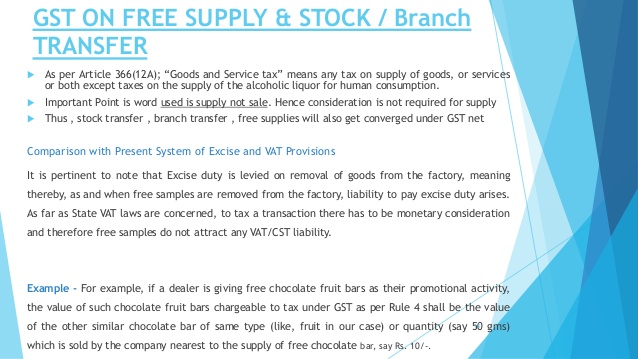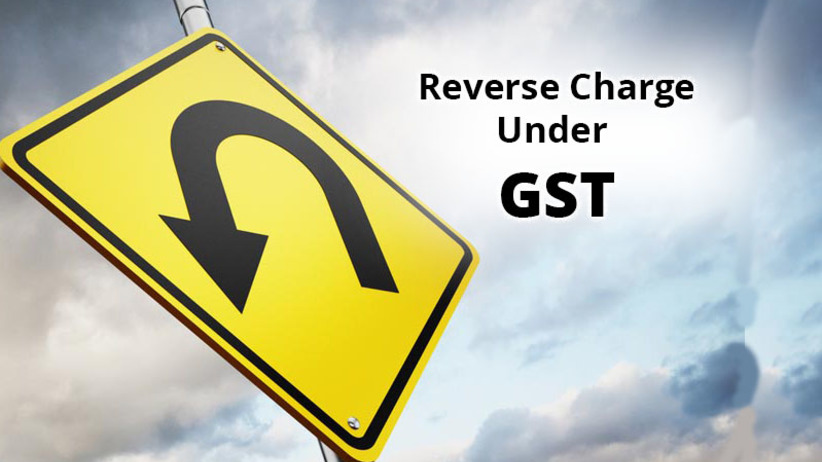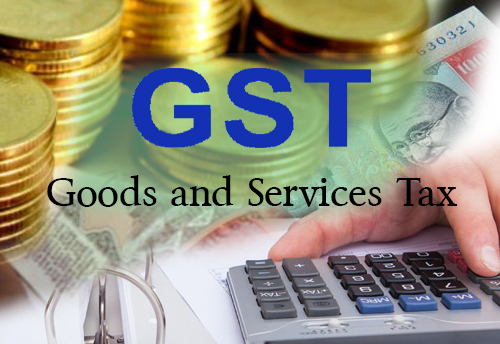Examining the Taxability of Free Supplies under GST

taxable-of-free-supplies-in-gst
Free Supplies are goods and services supplies free of cost i.e. nothing in return apparently. They all say free supplies are taxable under GST Act(s) (‘the law’), let us examine the truth behind such statement and the extent of truthiness. It is a settled law, that a taxation levy has four corners, four points on which it must stand out to validate its existence. They are
- Taxable Person – the person upon whom tax liability can be forced upon
- Taxable event (in the tax statute) and it also must satisfy the test of constitutionality
- Rate of Taxation
- A Measure for value of Tax
Let us then discuss the taxability cornerstones with respect to Free Supplies one by one
- Taxable Person: Section 7 (2) of the law provides that charge for levy of the GST(s) under the respective Central & State statutes, the section reads as follows;
7. Levy and Collection of Central/State Goods and Services Tax
(1) There shall be levied a tax called the Central/State Goods and Services Tax (CGST/SGST) on all intra-State supplies of goods and/or services at the rate specified in the Schedule . . . to this Act and collected in such manner as may be prescribed.
(2) The CGST/SGST shall be paid by every taxable person in accordance with the provisions of this Act.
The taxable person is defined under section 9 read with Schedule III of the law as a person who carries on any business at any place in India whose aggregate turnover exceeds Rs. 5/10/20 lakhs in a financial year. Let us take an example of a large scale FMCG company (‘Company X’) operating PAN India having turnover exceeding the specified threshold limit. Therefore test of taxable person stands satisfied in this case.
2. Taxable Event: Section 7 (1) of the law as above, defines the taxable event – that there shall be levied GST on the supplies of goods and/or service. Supply is defined under section 3 of the law as;
- Meaning and scope of supply
(1) Supply includes
(a) all forms of supply of goods and/or services such as sale, transfer, barter, exchange, license, rental, lease or disposal made or agreed to be made for a consideration by a person in the course or furtherance of business,
…………………………………………………….
(c) a supply specified in Schedule I, made or agreed to be made without a consideration.
……………………………………………………………….
Let us first examine the validity of taxability of free supplies from view point of clause (c) since, this has been the most cited provision of law by the domain experts and the scholars to justify the taxability of Free Supplies. Clause (c) says a supply listed under Schedule I to the law even without consideration shall be treated as supply for the purpose of taxable event under section 7. Relevant text of Schedule I is reproduced below;
SCHEDULE I
MATTERS TO BE TREATED AS SUPPLY WITHOUT CONSIDERATION
…………………………………………………….
- Supply of goods and / or services by a taxable person to another taxable or non-taxable person in the course or furtherance of business.
It is clear from the above, that any supply from a taxable person shall be treated as supply even if the same is without consideration. Continuing with the example from above, since the Company X is a large scale FMCG company, it usually supply free sample of products to consumers in the course of their business as per marketing strategy. The primary reason behind free distribution of sample is to promote the product of the company. Therefore, supply of products to consumer without anything in return, is appropriately covered under the above Para 5 of schedule I, hence it can be concluded that taxable event is also satisfied.
3. Taxable Rate: For the sake of it, let say the rates will be prescribed in the Schedule to the law. Let us say, the FMCG Company distributed the product which is an otherwise taxable product under the law, accordingly this criterion for rate of taxation is also fulfilled in our example.
4. Measure for Value: Valuation of supplies is where things gets ugly when it comes to Free Supplies. The Valuation principles are entailed under section 15 of the law, relevant text is;
- Value of taxable supply
(1) The value of a supply of goods and/or services shall be the transaction value, that is the price actually paid or payable for the said supply of goods and/or services where the supplier and the recipient of the supply are not related and the price is the sole consideration for the supply.
………………………………….
(4) The value of the supply of goods and/or services in the following situations which cannot be valued under sub-section (1), shall be determined in such manner as may be prescribed in the rules.
(i) the consideration, whether paid or payable, is not money, wholly or partly;
(ii) the supplier and the recipient of the supply are related;
(iii) there is reason to doubt the truth or accuracy of the transaction value declared by the supplier;
(iv) business transactions undertaken by a pure agent, money changer, insurer, air travel agent and distributor or selling agent of lottery;
(v) such other supplies as may be notified by the Central or a State Government in this behalf on the recommendation of the Council.
Superimposing the pre-conditions entailed under sub section (1) with our example of Company X, we can gauge whether Transaction Value which is “Zero” amount collected from the consumer can be called as assessable value for the purpose of levying GST(s);
| Supplier and recipient are not related | Yes, the FMCG company and a normal consumer is not related |
| Price is the sole consideration | The price need to be further dwelled down as to what is the consideration. This is where things get real ugly – whether the value zero which is paid by the consumer to the FMCG company is the sole consideration? |
Consideration has been defined under section 2(28) of the law as;
(28) “consideration” in relation to the supply of goods and/or services to any person, includes
(a) anypayment made or to be made, whether in money or otherwise, in respect of, inresponse to, or for the inducement of, the supply of goods and/or services, whether by the said person or by any other person;
(b) the monetary value of any act or forbearance, whether or not voluntary, in respect of, in response to, or for the inducement of, the supply of goods and/or services, whether by the said person or by any other person:

Consideration means any hard payment, any act or any forbearance, the question now arises whether the “publicity” caused at the hand of consumer by promoting the product of FMCG can be considered as “consideration” under the framework of above definition.
The answer whether the market penetration of a product can be called as additional consideration (‘consideration’ for the sake of facts herein), was considered by the Hon’ble Supreme Court in the celebrated Fiat Ruling (2012 (283) ELT 0161 (SC)), wherein the court read down many of the legal pronouncement and interpretation of consideration under the Indian contract act, 1878 and held as under
“60………………………………..If the sale is influenced by considerations other than the price, then, Section 4(l)(a) will not apply. In the instant case, the main reason for the assessees to sell their cars at a lower price than the manufacturing cost and profit is to penetrate the market and this will constitute extra commercial consideration and not the sole consideration. As we have already noticed, the duty of excise is chargeable on the goods with reference to its value then the normal price on which the goods are sold shall be deemed to be the value, provided : (1) the buyer is not a related person and (2) the price is the sole consideration. These twin conditions have to be satisfied for the case to fall under Section 4(l)(a) of the Act. We have demonstrated in the instant cases, the price is not the sole consideration when the as-sessees sold their cars in the wholesale trade…………..”
Section 15(1) of the law is parimateriato Section 4 (1) of the Central Excise Act, 1944 vis-à-vis “sole consideration”, hence on the basis of above ruling it can be said that the publicity provided by the consumer to the FMCG company will be called as additional consideration and hence section 15(1) of the law will not be applicable for the purpose of valuation of Free Supplies. Once, it is held that value cannot be determined under Section 15(1) recourse will have to be taken to Valuation Rules on invocation of Section 15 (4) (i). Henceforth, the value of free supplies can be determined under Rule 4, 5 or 6 as the case maybe. Accordingly, the Free Supplies can be measured for the purpose of taxation of GST, satisfying the fourth corner of taxability as well.
Conclusion: On the basis of above analysis, it can be said that the Free Supplies shall become taxable under GST under the valid authority of law.
On a side note though, some other points needs consideration which can impact the interpretation of taxability of Free Supplies as propounded above
5. If “market penetration” is indeed a consideration, then whether the Free Supplies be made taxable under the main part of definition of supply under clause (a) of the section 3 (1), making an end to the theory of Schedule I Para 5. Or to say it other way, can an argument be taken that since the Free Supplies are without consideration and hence they are made taxable under clause (c) read with Schedule. This conclusion will lead to the fact, that theconsiderationis non est(non-existing) as declared by the law, so how can the consideration be counted as existing for valuation provisions. Accordingly when there is no valuation provision, the levy is not sustainable. [Suresh Kumar Bansal vs UOI 2016 (043) STR 0003 (Del.), COMMISSIONER OF C. EX. & CUS., KERALA Versus Larsen & Toubro Ltd. 2015 (039) STR 0913 (S.C.)]
6. The theory propounded by the Apex Court in the Fiat Ruling that “consideration” shall include market penetration was decided taking recourse to the judicial precedents and definition under the Indian contract act, 1872 since the word was not defined under the Central Excise Law. However, that is not the case under the GST law, the considerationas per the definition under section 2(28) above, means any payment, any act or any forbearance which are further meant in legal terms as follows;
| Payment | Act | Forbearance | |
| Merriam Webster | · : the act of giving money for something : the act of paying
· : something that is given to someone in exchange for something else · : an amount of money that is paid for something
|
a : the doing of a thing : deed
b : something done voluntarily |
1. 1: a refraining from the enforcement of something (as a debt, right, or obligation) that is due
2. 2: the act of forbearing : patience 3. 3: the quality of being forbearing : leniency |
| Black Law Dictionary | The performance of a duty, promise, or obligation, or discharge of a debt or liability, by the delivery of money or other value. Also the money or other thing so delivered. | Something done or not done intentionally by a person. | The act of abstaining from proceeding against a delinquent debtor;delay in exacting the enforcement of a right; indulgence granted to a debtor. |
Rationally, it can be said that “publicity” of the product by the consumer cannot neither result in “payment” since no money or its equivalent is given out by him nor it can be called “forbearance” since the consumer doesn’t take any step back. At most the “publicity” can be considered as “an act”. The term “consideration” therefore has every characteristic to be brought before judicial scrutiny to nullify the GST on Free Supplies, just in case, someone, someday……
7. Another important thing is, to overcome the Fiat Ruling, the central government amended the Rule 6 of the Central Excise Valuation Rules, 2000 in the year 2014 by providing a proviso to the said rule as follows;
Provided that where price is not the sole consideration for sale of such excisable goods and they are sold by the assessee at a price less than manufacturing cost and profit, and no additional consideration is flowing directly or indirectly from the buyer to such assessee, the value of such goods shall be deemed to be the transaction value.
The above provision didn’t impacted the valuation of Free supplies since, under the current central excise law, the valuation of Free Samples of Goods is determined as per Rule 4 of the Central Excise Valuation Rules as clarified by the Board’s Circular 813/10/2005-CX dated 25.04.2005 and approved in the case of Indian Drug Manufacturer’s Association vs Union of India 2008 (222) ELT 0022 (Bom.) para 28.
| Sl. No. | Old
Sl. No. |
Point of Doubt | Clarification |
| 1. | 13 | How will valuation of samples be done which are distributed free, as part of marketing strategy, or as gifts or donations? | In case of free samples, the value should be determined under Rule 4 of Central Excise Valuation (Determination of Price of Excisable Goods) Rules, 2000. |
However, assuming, that provision similar proviso under Rule 6 is introduced under the GST law, then not only this provision will validate the genuine cases like that of Fiat, but is can also render the valuation of Free Supplies as Nil, consequently making GST Nil, unless of course there is distinction made between Fiat alike cases and Free Supplies
- The fact that Free Supplies in our example of distribution by FMCG in the anticipation of “market gain”, makes a case of taxability, however the taxability test is shall not be satisfied on all Free Supplies as blanket. There are more than one supplies which are free and which are not in the anticipation of a gain, benefit or consideration, such as
a. Giving Free Lunch as part of the welcome gesture to guests
b. Almost all the activities coming under the CSR projects as specified under the companies Act, 2013 since these activities are prima facie not in anticipation of any gain.
c. Lectures by domain experts in educational workshops which are not for gaining any benefit in the future (Eh?)
In the above, cases there is no consideration flowing from the recipient of supply to the supplies, In fact there is no market gain as well, hence the valuation shall be determinable under section 15 (1) itself viz. Transaction Value i.e. “ZERO”.In this case recourse cannot be made to Valuation rules since they can be invoked only in certain cases. Section 15 (4) list specific cases viz. (i) consideration in monetary terms (ii) supplier and recipient being related (iii) doubt on truth or accuracy of transaction value (iv) pure agent, money changer etc cases (v) notified supplies. Accordingly, Section 15 (4) do not list a case where there is absolutely no consideration, hence valuation rules cannot be invoked, consequently rendering the goods without a measure for value. GST will not be applicable in above cases, unless of course the government notifies the same under clause (v).
On a whole, it can be concluded, that Valuation Rules taken from Customs Law as mere verbatim, would make the GST Law troublesome. Free Samples are not uncommon, therefore one is expected to have crores of amount in litigation if clear principles of law are not enumerated. A more suitable approach would be clearly listing down provisions where there is even iota of exploitation rather than mugging up the law with deeming fictions and provisos and circulars.
Thanks
Manish Sachdeva


 Sales Tax For E-Commerce: 3 Things Small Businesses Should Know
Sales Tax For E-Commerce: 3 Things Small Businesses Should Know  What Is The GST Liability on Free Supply of Goods and Services?
What Is The GST Liability on Free Supply of Goods and Services?  Some FAQs about GST- Understanding Scope and Provisions of GST
Some FAQs about GST- Understanding Scope and Provisions of GST  Understanding the Reverse Charge mechanism under GST and IGST?
Understanding the Reverse Charge mechanism under GST and IGST?  Pros and Cons of GST- Is Ushering in of GST worth Celebrating as media wants us to believe?
Pros and Cons of GST- Is Ushering in of GST worth Celebrating as media wants us to believe?  Arrests and Detention Provisions under GST in Detail- Are these justified
Arrests and Detention Provisions under GST in Detail- Are these justified  ITAT Amritsar: No Section 269SS Violation for One-Time Cash Payment Before Sub-Registrar
ITAT Amritsar: No Section 269SS Violation for One-Time Cash Payment Before Sub-Registrar  Tax Officials Unleash Digital Dragnet: How New Raid Powers Redefine Privacy, Property Rights in India and likely to Fuel Corruption
Tax Officials Unleash Digital Dragnet: How New Raid Powers Redefine Privacy, Property Rights in India and likely to Fuel Corruption  Income Tax Department Rewards for Reporting Tax Evasion: A Comprehensive Guide
Income Tax Department Rewards for Reporting Tax Evasion: A Comprehensive Guide  Forfeiture of Gratuity by Employer- What are the Remedies for an employee- Can employer be challenged?
Forfeiture of Gratuity by Employer- What are the Remedies for an employee- Can employer be challenged?